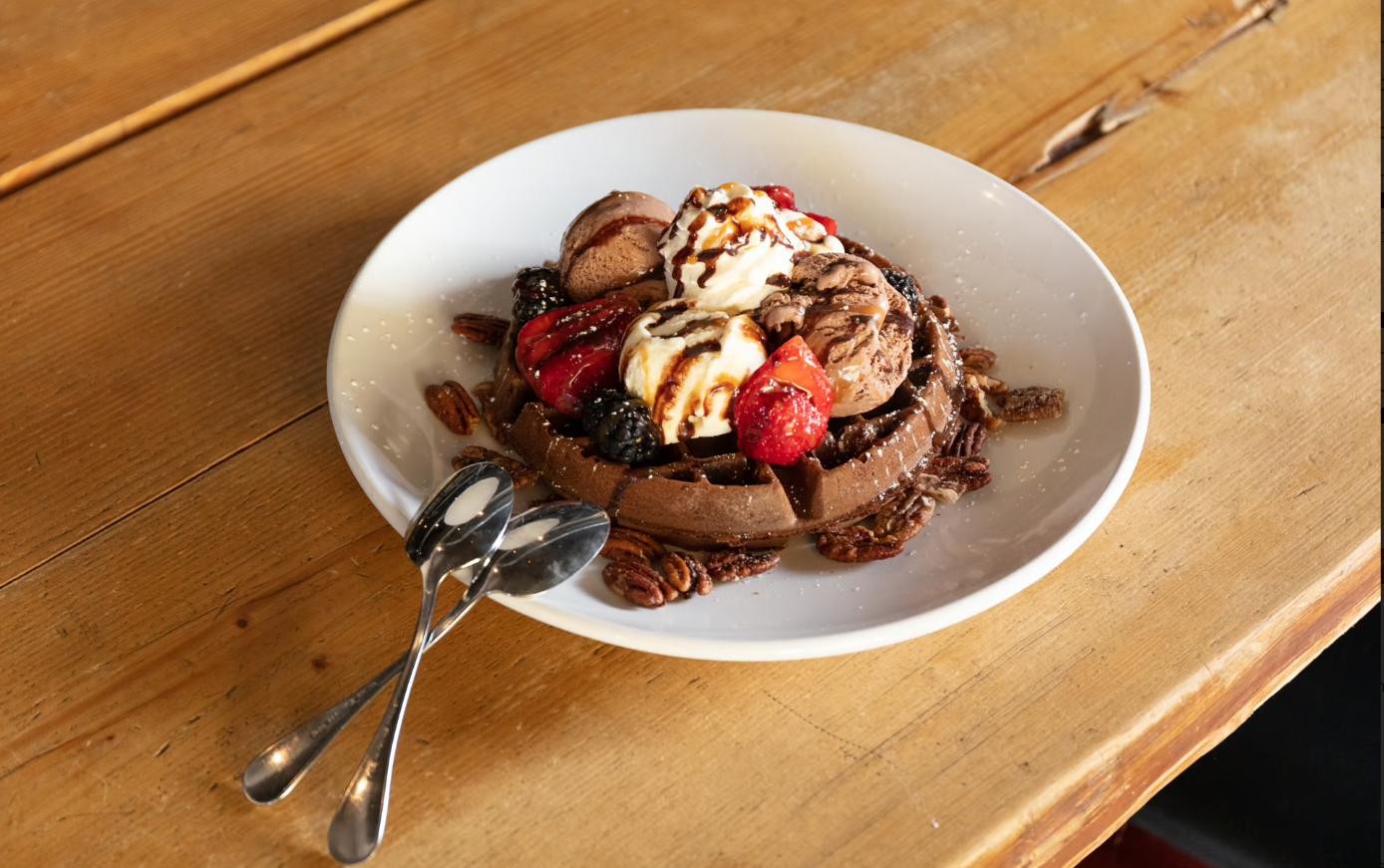
Don Guerra is attuned to the vagaries of nature. The craft baker has learned to respect its power while staying open to its possibilities. Case in point: his campaign to help revive White Sonora wheat, a heritage grain few people knew existed before Guerra began popularizing it in his artisan Barrio Bread, much less that it could be grown in Southern Arizona.
So perhaps it was apt that, when Guerra ascended the stage at the Lyric Opera of Chicago to accept the 2022 James Beard award for Outstanding Baker on June 13, severe weather alerts began blaring over the phones in the audience. Only later, after he was whisked down to the theater’s basement rather than escorted to the glass press room, did he find out that a tornado-like superstorm had swept the city.

And when he learned that his flight back to Tucson had to be rescheduled as a result of the severe weather, Guerra took the news in stride, exhibiting the good nature and equanimity that everyone who knows him has come to expect. After all, he had already accomplished what he set out to do: give a national platform to the many unacknowledged people and practices that led to his appearance on the Lyric Opera stage to accept the culinary world’s top honor.
As he put it, “The James Beard award is not about bragging rights. It’s about the spotlight that I can give to the work that’s been done for years, for centuries, by the native peoples, their farming practices.” He emphasizes that he stands on the shoulders of many when he is celebrated for his bread. “The food community says, ‘Oh wow, how beautiful and how tasty.’ However, a lot of people come into play to create that. This award lets me give thanks to the many, the farmers, the millers, the small business owners who have been unrecognized for years.”
Guerra was born in Tempe and, after graduating high school in 1989, attended the University of Arizona — briefly. “I enjoyed it and tried my best but wasn’t sure if academia was for me. I also had some financial insecurity, even with the scholarship I’d been given,” said Guerra.
He moved to Flagstaff and, almost as soon as he arrived, “fell into a baking job. I loved it from day one, loved the whole environment.”
Guerra opened a bakery with partners in Flagstaff in 1995, then started another in Ashland, Oregon, in 1997. “I was living in Ashland and managing two bakeries, which was a struggle and very stressful. I was very young and unprepared for running businesses — and managing myself.”
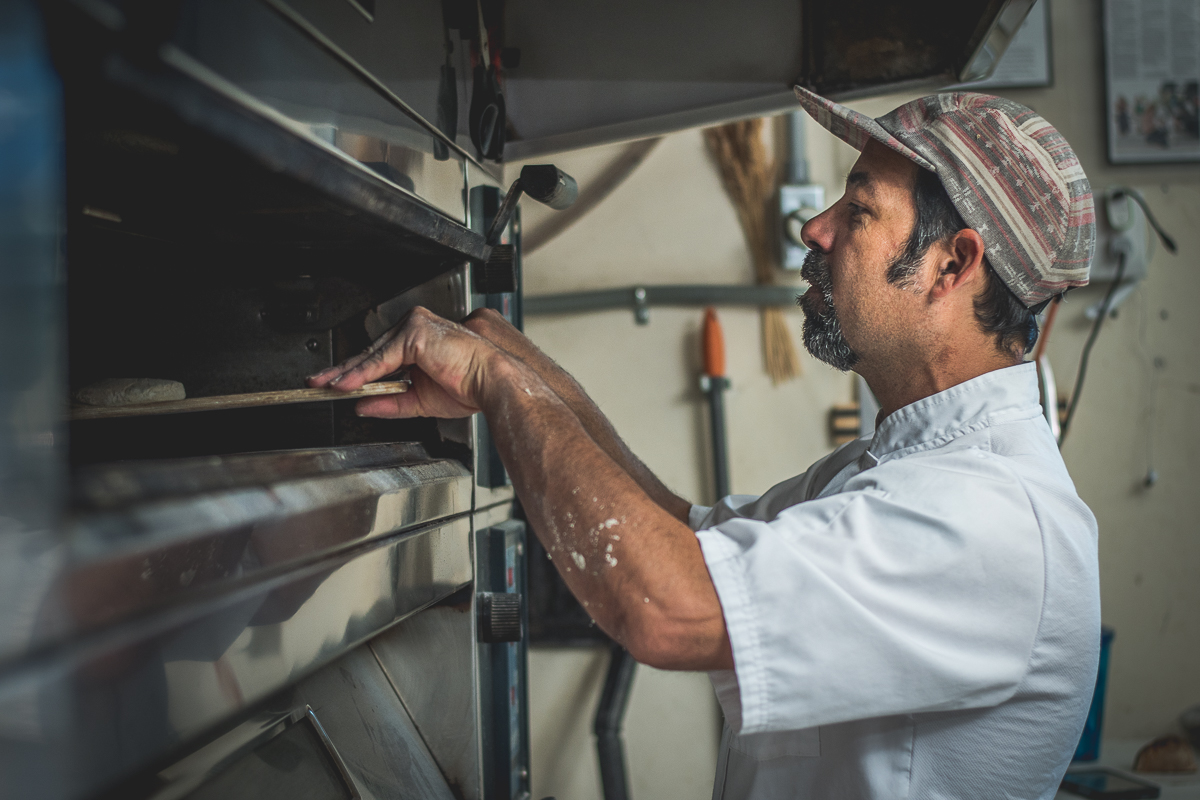
After selling his interest in the bakeries to his partners, Guerra returned to the University of Arizona to get his teaching credentials. A natural educator, he had been teaching for seven years at the public Miles Exploratory Learning Center when the baking bug took hold of him again in 2009.
But this time it was different. “I had a vision of what the bakery model of today would look like in a greener economy. When I started in Flagstaff, my grain was shipped from hundreds of miles away, from warehouses and brokers managing those warehouses. I didn’t have any idea of where my ingredients came from. Now I really wanted to know.”
He also had enough experience in the business to understand the need to spend his money strategically. He invested in top-of-the-line baking equipment, including an Italian deck oven imported from Verona, and cut costs on retail rent by installing the gear in his garage. And so it was that Guerra started running a kind of sourdough speakeasy. Those in the know would order his artisan loaves online, then pick up their crusty treasures at a designated time and place. He also brought his bread to farmers’ markets, where it quickly sold out.
Guerra’s quest for locally sourced ingredients led him to partner with like-minded community groups, including the nonprofit Native Seeds/SEARCH. They got a research grant to help revive White Sonora wheat, a grain that had been introduced to native farmers in the late 17th century by missionary Father Kino part of northern Mexico where Guerra’s paternal ancestors are from. As an incentive to growers like BKW Farms in Marana to give the wheat a try, Guerra committed to buying a percentage of the crop for his bakery.
Slowly, he was able to obtain more of the coveted grain, and get it processed by Hayden Flour Mills in Queen Creek. Word spread of Guerra’s baking skills, the distinctive taste of his bread — and its unusual stencils.
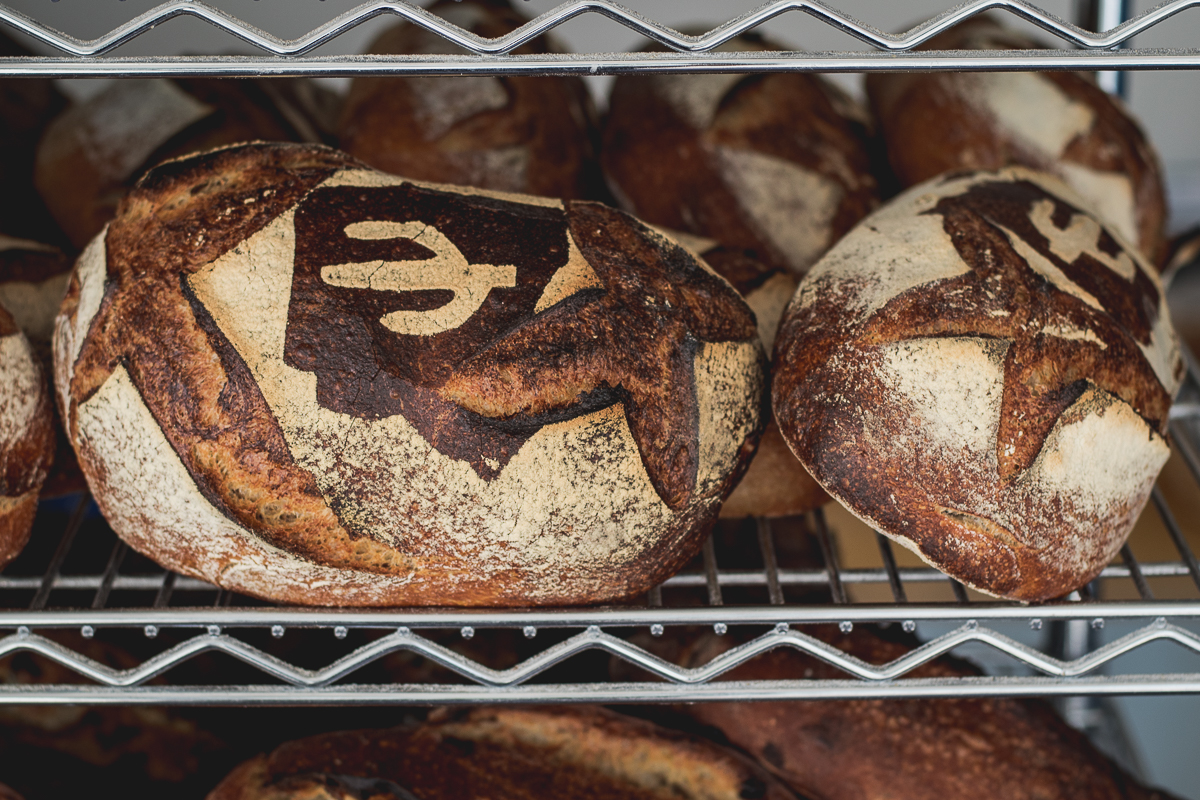
Why the bread art?
Guerra explains, “I was making bread with White Sonora wheat and other single-variety grains, and a lot of customers didn’t understand why I would do that when I could buy a big bag of flour for 75% less than what I was paying. I decided to let the bread do the talking.”
He created a stencil of an outline of the state of Arizona with a saguaro in the middle — and a light went on. “People said, ‘Oh that must be bread with grains from Arizona.'” He laughs. “The bread took center stage, explaining itself and its origins.”
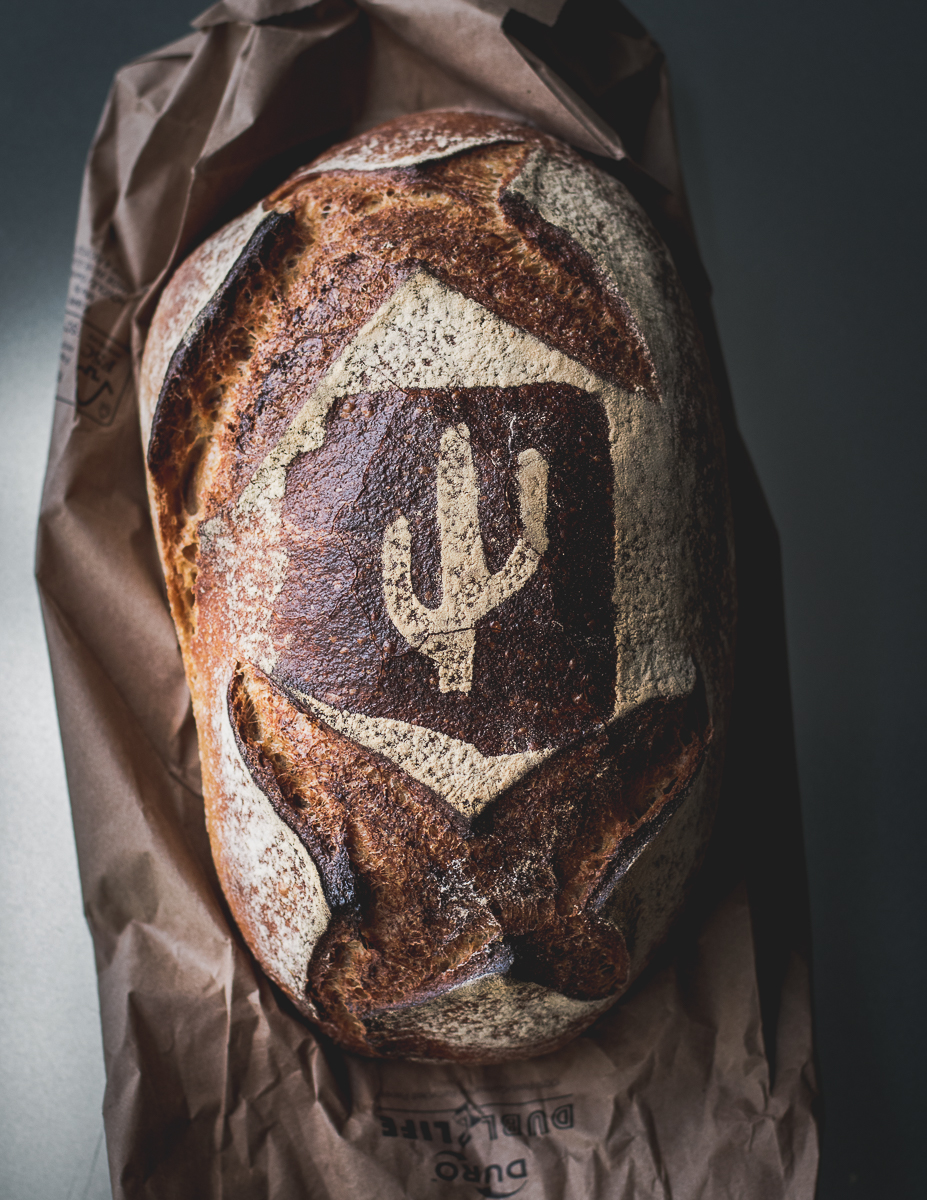
In 2016, Guerra moved the bakery from his garage into Broadway Village, setting regular hours for sales. The same year, a New York Times piece about Tucson’s designation as the first UNESCO City of Gastronomy in the United States highlighted Barrio Bread and called its owner “a cult star among the nation’s slow-fermentation bread bakers.” By then, Guerra says, “My business was in place to be a sort of a model for what the City of Gastronomy designation represented: sustainable practices, knowledge sharing, agricultural history, and cultural preservation of food.”
The establishment of the brick-and-mortar store also brought Guerra the confidence to start collaborating with the Flores family and their Si Charro! concepts.
“Carlotta [Flores] would reach out to me every once in a while I was in the garage and ask if I could supply bread to their restaurants,” he says. “But at that time, I had a very limited supply and I didn’t want to overpromise and underdeliver.”
A larger support staff and a dependable schedule eventually led him to partner with Carlotta to create Barrio Charro, a Mexican bakery-cafe that uses Guerra’s bread in the sandwiches and sells them by the loaf. The cafe’s success, despite opening during the height of the pandemic, led to another collaboration with the Flores family: The Monica, downtown’s hot new fast-casual concept.
Guerra says of his partnership with Carlotta and Ray Flores, “We’re very aligned in our goal to uplift our community. We do that through hiring locals in our businesses and also through feeding people the best food possible, making them feel proud of where they live through that food.”
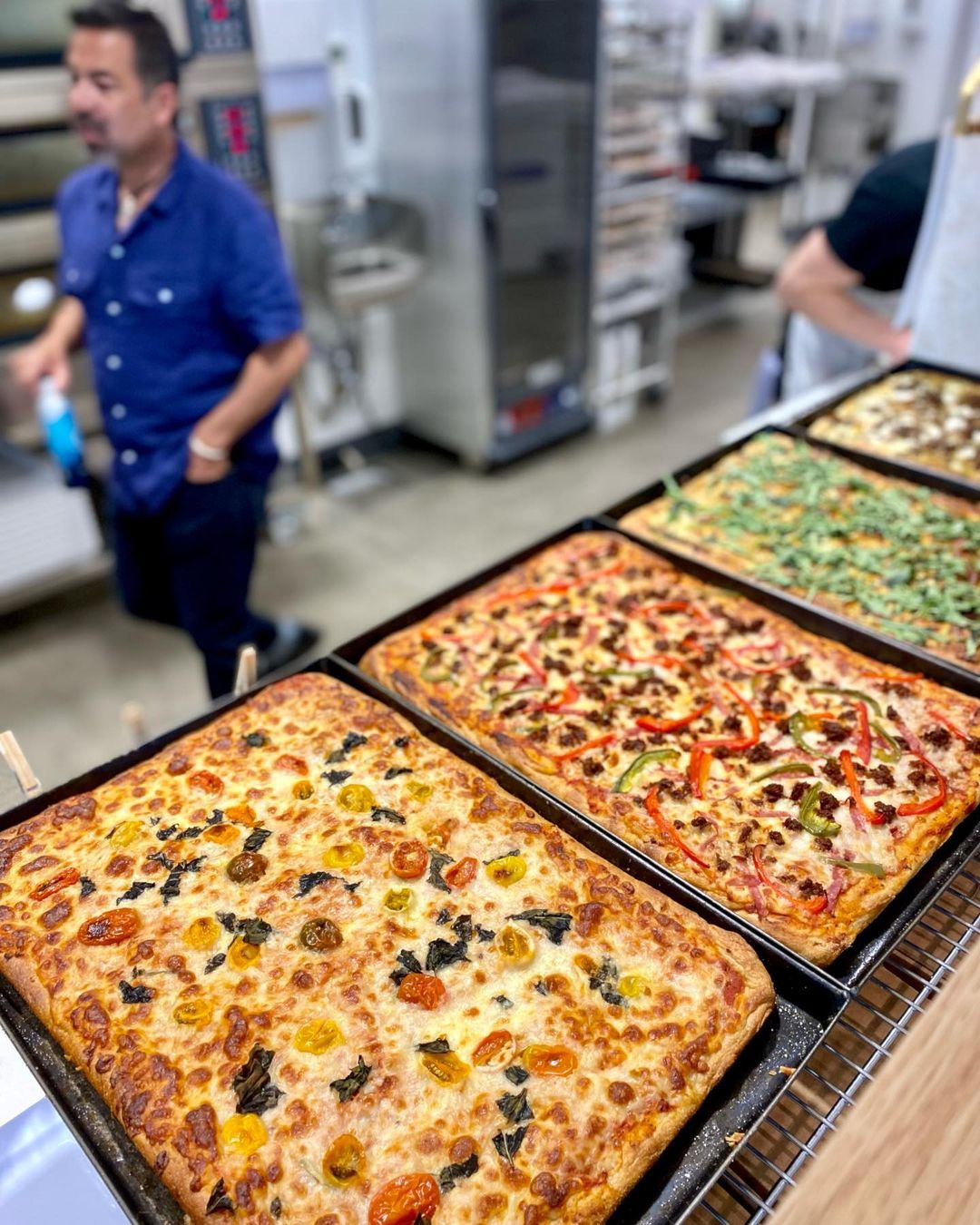
The pizza served at The Monica is made with a flour blend produced by Guerra’s latest venture, Barrio Grains. In addition to allowing him to create locally sourced single-grain flour and flour blends, two USDA grants also enabled him to create video courses in bread- and pizza-making; see BreadLessons.com. Barrio Grains products are currently available at Barrio Bread and will soon be sold at the Monica, Barrio Charro, and the Food Conspiracy Co-op. They will also be available online through Goldbelly and Guerra’s in-the-works online store.
Perhaps as a harbinger of his success in getting the James Beard award after two previous nominations, a full length-profile of Guerra appeared in the New York Times in late 2021.
Will this widespread recognition give Guerra a chance to rest on his laurels–or at least take a break?
Not a chance. Guerra regards his newfound prestige not as a culmination of his career but as a source of renewed energy to engage the Tucson community, where people are very excited for him. He says, “Tucson is amazing. When we see success, we all want to rally around, whether it’s a business or a person or a movement.” He adds, “Sure, I was able to get this sort of Lifetime Achievement Award, but I really want to pay it forward,” especially by sharing his knowledge with the next generation. “I’ll never stop making bread, but I’m hoping to inspire younger people to take up the bulk of the bread-making part.”
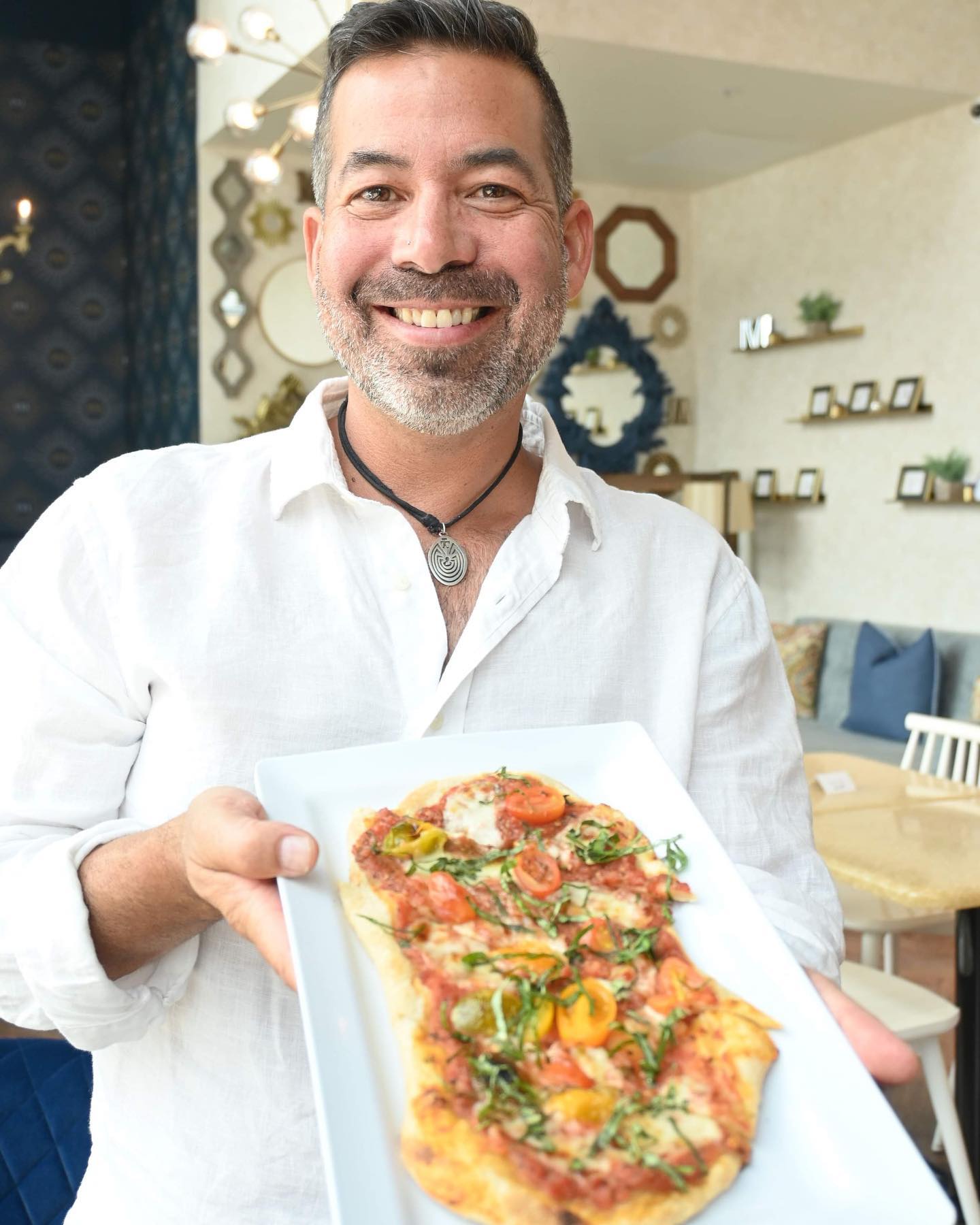
Guerra notes, “I love new challenges, and I’m not comfortable being idle. I’m always open to new job opportunities and ideas. I know life is not very predictable.”
For example, there might be a tornado in Chicago right when he wins his James Beard award.
Guerra laughs. “Yes, and you know what? I just go along with it.”
Edie Jarolim has worn many hats, including a sombrero on a one-too-many-margaritas night. She earned a Ph.D. in American literature from New York University and was a guidebook editor at Fodor’s (Random House) and Frommer’s (Simon & Schuster) in New...